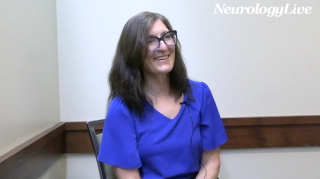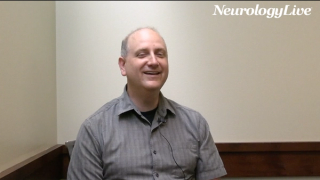
Sleep Disorders
Latest News
Latest Videos

Podcasts
CME Content
More News

In this final episode, the sleep experts analyze real-world prescribing data to understand how low-sodium oxybate impacts the use of traditional alerting agents in narcolepsy. [WATCH TIME: 4 minutes]

In episode 5, the sleep specialists examine actigraphy data from a study of TAK-861 in narcolepsy type 1 and discuss the promise of home-based sleep tracking in clinical care. [WATCH TIME: 3 minutes]

Here's some of what is coming soon to NeurologyLive® this week.

In this segment, Eric Olson, MD, and Anita Shelgikar, MD, discuss the design of the Vibrance-3 trial, a phase 2 study of the orexin-2 receptor agonist ALKS 2680 in patients with idiopathic hypersomnia. [WATCH TIME: 4 minutes]

In episode 3, Drs. Olson and Shelgikar break down a retrospective study exploring how social determinants of health impact the clinical experience of patients with narcolepsy. [WATCH TIME: 6 minutes]

Neurology News Network. for the week ending July 26, 2025. [WATCH TIME: 4 minutes]

Panelists Eric Olson, MD, and Anita Shelgikar, MD, examine interim data on high-dose low-sodium oxybate in patients with narcolepsy, discussing safety signals, efficacy trends, and clinical considerations. [WATCH TIME: 4 minutes]

In this episode, Eric Olson, MD, and Anita Shelgikar, MD, review the XYLO study’s findings on the impact of switching from high- to low-sodium oxybate on blood pressure in patients with narcolepsy.

Neurology experts anticipate groundbreaking clinical trial results in 2025, potentially transforming treatment strategies for various neurological conditions.

Apnimed's AD109 shows promising results in treating obstructive sleep apnea, potentially revolutionizing care for millions with a once-daily oral medication.

New study reveals that alixorexton significantly improves wakefulness and reduces daytime sleepiness in narcolepsy type 1, paving the way for phase 3 trials.

Here's some of what is coming soon to NeurologyLive® this week.

Emmanuel During, MD, an associate professor of neurology at the Icahn School of Medicine at Mount Sinai, discussed the external validation of an actigraphy-based classifier for diagnosing iRBD and its implications for scalable neurodegenerative screening.

Takeda reveals promising phase 3 results for oveporexton, a potential breakthrough treatment for narcolepsy type 1, targeting excessive daytime sleepiness.

Here's some of what is coming soon to NeurologyLive® this week.

Take 5 minutes to catch up on NeurologyLive®'s highlights from the week ending July 11, 2025.

The investigational oral orexin receptor 2-selective agonist oveporexton is designed to restore orexin signaling to address the underlying orexin deficiency caused by narcolepsy type 1.

Mind Moments®, a podcast from NeurologyLive®, brings you an exclusive interview with Joyce Lee-Iannotti, MD, PhD. [LISTEN TIME: 17 minutes]

The chief medical and scientific officer at Harmony Biosciences discussed the pharmacologic rationale and preclinical development of BP1.15205, a novel orexin receptor 2 agonist for hypersomnolence.

Here's some of what is coming soon to NeurologyLive® this week.

Take 5 minutes to catch up on NeurologyLive®'s highlights from the week ending July 4, 2025.
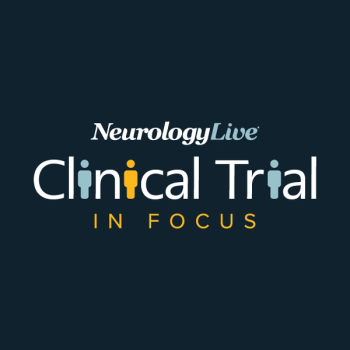
Following positive phase 3 findings, Apnimed plans to submit a new drug application to the FDA in early 2026 for its lead candidate AD109 as a potential treatment of obstructive sleep apnea.
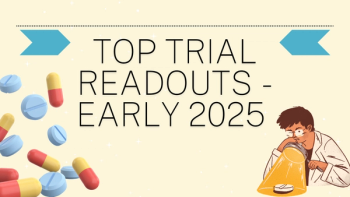
Overviewing the major clinical trial readouts in neurology from the first half of 2025, with data that could reshape patient care.

Here's some of what is coming soon to NeurologyLive® this week.
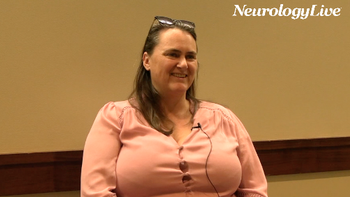
The postdoctoral researcher at the Woolcock Institute of Medical Research highlighted EEG-based evidence supporting ALKS 2680's wake-promoting effects in patients with narcolepsy and idiopathic hypersomnia. [WATCH TIME: 3 minutes]










